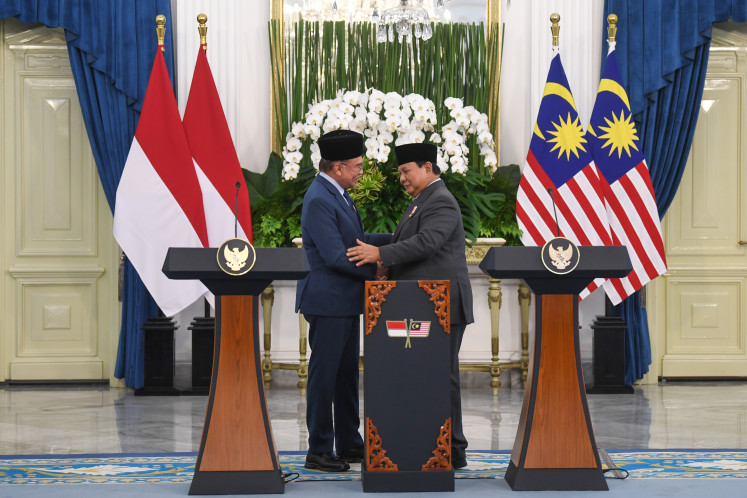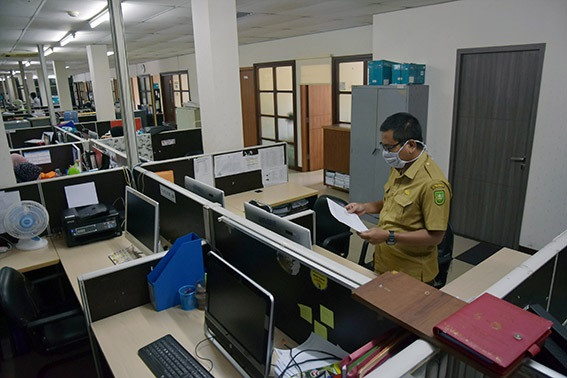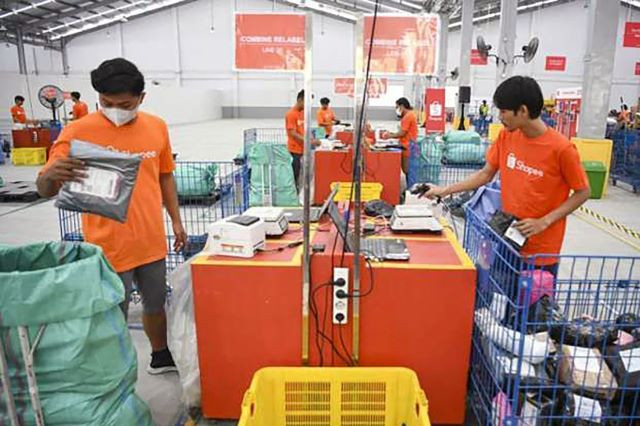Popular Reads
Top Results
Can't find what you're looking for?
View all search resultsPopular Reads
Top Results
Can't find what you're looking for?
View all search resultsYour letters: Living Indonesian in the Ivy League
The first stop I made upon arriving in Philadelphia, the United States, was at an Indonesian restaurant
Change text size
Gift Premium Articles
to Anyone

T
he first stop I made upon arriving in Philadelphia, the United States, was at an Indonesian restaurant. I had just arrived a couple days earlier in New York, but the foreign sights and smells around me instantly made me crave something familiar. The restaurant belonged to a picturesque modern American family. Only one thing differed; like me, they called Indonesia home.
This was not my first time being away from home for a long period of time and it was not my first time in the US, but I was glad nonetheless to see the cheery faces of the Indonesian restaurant owners as we walked into the restaurant. Our table was promptly covered in dishes of nasi goreng (fried rice), mie goreng (fried noodles), and tempeh. I was shocked to find out that the restaurant was situated in a quiet neighborhood with a substantial population of Indonesians who had moved to Philadelphia in search of better opportunities.
The University of Pennsylvania was in stark contrast to that quaint neighborhood, although it is a mere couple of kilometers away. When I accepted my offer of admission, I knew that I could expect a scarcity of Indonesians and Indonesian culture. A couple of Google searches allowed me to deduce that there was neither a strong Indonesian footprint nor student association at Wharton/Penn in comparison to that of other nationalities. I found that this was true when, at the annual club and student organization fair at the beginning of the year, there was not a single booth proudly bearing the word 'Indonesia'. For a while during my first semester, I wondered why this was.
The answer came in bits and pieces throughout my time there. Admission rigor was, and always will be, a factor, but what is not a factor is applicant strength. There is no question that our students are academically on par with the rest of the world's students. However, there is a lack of push from the country itself (that is ever so present in other countries) to send its students abroad to participate in the global scholarly forum that gives way to the bettering of our future socioeconomic landscape. Not only is there the lack of inner propulsion, there is a deficiency of resources and knowledge about admission processes. Students in Indonesia simply find it rather difficult to gather important information on the admission processes of selective institutions. Out of all of this, there exists a demand for aggregators from the government as well as private establishments that can bridge this gap.
One of my favorite classes at Wharton is operations and information management. In the class, students learn about supply-side economics and procedures. As my professor rightly puts it, production rate is not meeting demand, and there is a bottleneck in the supply-chain flow of students pursuing studies abroad.
At the other end of the spectrum lies the question that addresses many Indonesian students in institutions abroad where their cultural uniqueness happens to be apparent. How do we, as students who represent the rarities of a culture, develop an identity of our own that inherits from our roots yet allows us to integrate into the collective melting pot of cultures?
Gitta Amelia Djuwadi
Pennsylvania, US









